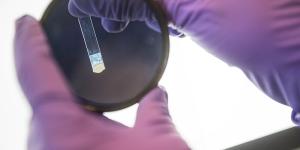The BioProducts Institute is changing the way our society collaborates with nature for a sustainable and renewable future.

Unlocking Nature for a Sustainable Future

Discover the range of BPI research activities

Meet BPI Principal Investigators driving bio-based innovation

Bringing research to market for real-world impact

Congratulations to our BPI researchers who are among UBC’s 71 projects awarded provincial funding through the B.C. Knowledge Development Fund! The....

BPI Connect 2025, held at the UBC Life Science Centre on December 11, celebrated the close of another wonderful year marked by collective successes and...

BPI is conducting an anonymous survey on equity, diversity, inclusion, and Indigeneity(EDI.I). The information collected from this survey will help us better un

Get ready for an unforgettable evening at BPI Community Day 2026—a celebration of collaboration, connection, and community!

This hands-on immersive program invites secondary students to discover how science and creativity can work together to shape a better world. Led by researchers

This annual signature event will showcase the latest scientific and technical advances that BPI researchers have accomplished in the field of bio-based...
UBC Vancouver is located on the traditional, ancestral, and unceded territory of the Coast Salish Peoples, including the territories of the xwməθkwəy̓əm (Musqueam), Skwxwú7mesh (Squamish), Stó:lō and Səl̓ílwətaʔ/Selilwitulh (Tsleil- Waututh) Nations.
UBC Okanagan is situated on traditional, ancestral, and unceded territory of the Syilx Okanagan Nation. The land has always been a place of learning for the Coast Salish and Syilx peoples, who for millennia have passed on their culture, history, and traditions from one generation to the next.